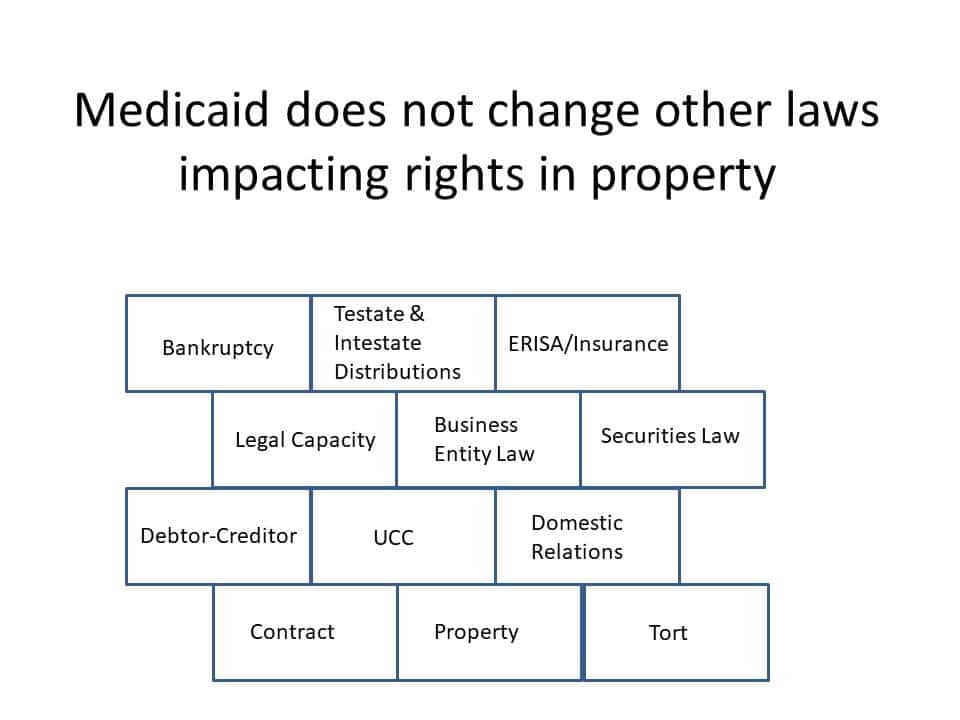One of the most fundamental, but often overlooked issues when planning for – or evaluating – Medicaid eligibility is this: Medicaid does not alter property rights, contract rights or other legal rights with value. Medicaid simply measures those rights to determine whether they cause an applicant to be eligible or ineligible. In other words, if a contract restricts an applicant’s right to liquidate a resource, Medicaid law does not suddenly remove those contract restrictions. If property law (or any other law) restricts an applicant’s right to liquidate or alienate a resource, then Medicaid does not suddenly grant applicants extraordinary legal rights to liquidate property. Under POMS SI 01110.115.A, assets of any kind are not resources if the individual does not have: any ownership interest; or the legal right, authority, or power to liquidate them (provided they are not already in cash); or the legal right to use the assets for his/her support and maintenance. See also Georgia ABD Manual 2300-1. The primary determination for Medicaid is whether rights were limited or restricted due to action by the applicant or spouse, by a person or court with legal authority to act in plae of or on behalf of the individual, or by any person, including a court or administrative body, acting at the direction or upon the request of the applicant or spouse. If so then Medicaid might consider a transfer of resources penalty if the action restricting or limiting the applicant’s rights occurred within 60 months prior to the application date. See 42 U.S.C. § 1396p(h)(1).
A second fundamental concept is that rights must be transferable or alienable. If a resource or income stream cannot be sold, then it has no value or very limited value in the open market. It should have no value until it can be sold. For example, in most States, a tort action cannot be transferred. Therefore, the existence of a tort claim should not impact Medicaid eligibility until it is liquidated into cash or other valuable rights through settlement or verdict. Similarly, if legal incapacity prevents liquidation of a resource or income stream, then the resource should have no value for purposes of determining Medicaid eligibility until a person is appointed with authority to liquidate the resource or income stream. Unfortunately, State Medicaid agencies sometimes attempt to rig the system by pretending liquidation is possible even when a legal barrier prevents it.


On July 4, 2025, the One Big Beautiful Bill Act was signed into law. One…
There are a few major changes for elders in the One Big Beautiful Bill Act.…
Recent Supreme Court Medicaid Case In Medina v. Planned Parenthood South Atlantic (US 6/26/2025), the…
As an initial proposition, all relevant evidence is admissible. See Federal Rules of Evidence, Rule…
Improper Use Spoils Trust Is it possible to spoil a trust by misusing it? The…
2025 Legislative Changes During its 2025 session, the Georgia Legislature passed, and the Governor signed,…